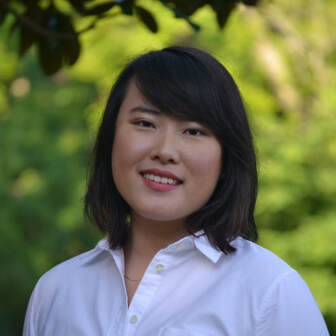by: Sarah Lyu Asian-American identity encompasses a wide range of experiences and holds space for multiple identities within its larger umbrella. Growing up in a family of Chinese immigrants, I largely saw myself and my story as fitting within that specific mold, but my understanding of what it meant to be of Asian descent in this country changed in college where, for the first time, I had access to classes on the history, literature, and psychology of Asian-Americans as a group. It was a process of awakening to the perspective that Asian-American was above all a political identity. That’s the approach I take to writing Asian-American characters and one I hope to see more of in fiction. The aspects of my personal history with all the texture of cultural touchstones like food and language, and the common narrative of assimilation, are still important to me, but there’s a bigger picture to the way people of East Asian, Southeast Asian, and South Asian descent are treated as a collective in this country, and that’s what I wanted to explore most. The rise of anti-Asian hate and violence during the pandemic is a stark example: it doesn’t seem to matter to attackers if someone is Korean-American, Japanese-American, Vietnamese-American, Thai-American, or Chinese-American; as long as someone looks of East Asian descent, they are potential targets. There’s a shared experience of marginalization that transcends different cultural and ethnic backgrounds. In my upcoming novel, I Will Find You Again, I used the experiences of Chase and Lia, both characters of primarily East Asian descent, to explore this more. Though they have different cultural and familial backgrounds, they struggle with the same kind of expectations all Asian-Americans face: We never talked about it explicitly, but I know it bothered her, the comparisons: two Asians in an overwhelmingly white school, one at the top and one middling. There were things teachers might let slip, like curiosity over a difference in our performance as if I matched their expectations but Lia fell short, seemingly innocent questions from classmates about her adoption like Lia had the genetic goods but was missing some key cultural element. Even little comments from Jo gently admonishing Lia to be more like me, which came off as awkward compliments but probably stung. They were all just small moments of friction that had to grate and grate on her. In another moment, Chase experiences internalized racism when she feels she must prove her athleticism beyond the standards of her White classmates, mostly because of the stereotype that Asians don’t excel at sports: I felt awful, light-headed and dizzy with the beginnings of a migraine. And worse, he was right—these were new coaches who’d never seen me run before, and I was the only Asian kid there. Maybe it wouldn’t have mattered, but I felt this pressure, like I had to be the fastest to prove I belonged on the team. The most important aspect I wanted to address was the idea that the pressure to perform academically that Chase’s father puts on her wasn’t rooted in an oversimplified view of Asian/Asian-American culture—her father’s drive and ambition, which he pushes onto Chase, is an artifact of his past trauma, not something he’d inherited from his own father. The engine behind everything he’s achieved and everything he hopes his children will achieve comes from a deep fear of scarcity because he grew up hungry. It was important for me to explore how this scarcity mindset had mutated with time within the family—how for Chase, it became about power and control because that was the effect her father’s demands had on her. My passion for depicting Asian-American as a political identity is ultimately rooted in a desire to challenge stereotypes and humanize us in a world that insists on oversimplification over complexity. That said, it’s not the main goal. The best way to humanize characters is to let them find their own away in the world, for them to be part of every kind of story imaginable. For more information and to purchase the book: https://www.simonandschuster.com/books/I-Will-Find-You-Again/Sarah-Lyu/9781534465152 Sarah Lyu grew up outside of Atlanta, Georgia, and graduated from the University of Pennsylvania. She loves a good hike and can often be found with a paintbrush in one hand and a cup of milky tea in the other. Sarah is the author of The Best Lies and I Will Find You Again. You can visit her at SarahLyu.com. Headshot credit: Anna Shih Comments are closed.
|
Archives
July 2024
Categories
All
|

 RSS Feed
RSS Feed



